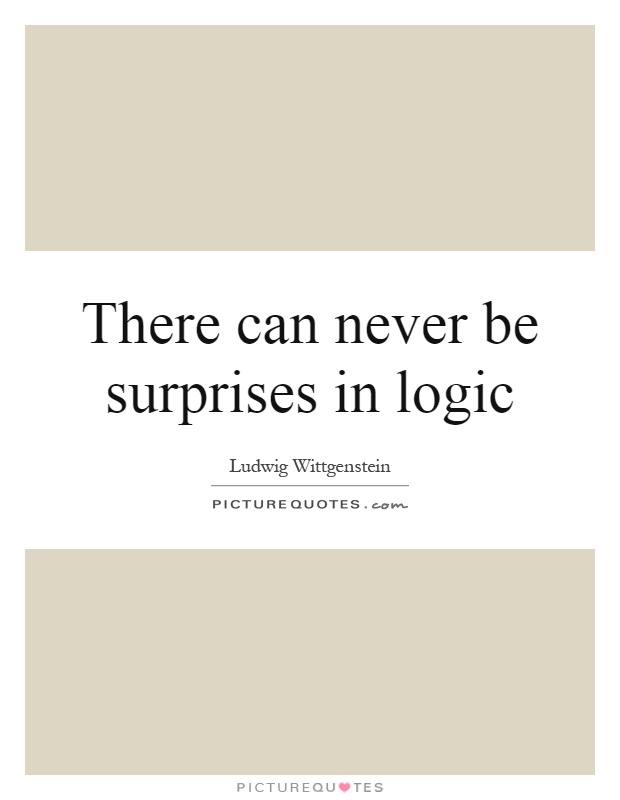There can never be surprises in logic

There can never be surprises in logic
Ludwig Wittgenstein, one of the most influential philosophers of the 20th century, made significant contributions to the field of logic and language. His work on the nature of logic and its limitations has had a lasting impact on the way we understand the world and our place in it. One of the key ideas that Wittgenstein explored was the notion that there can never be surprises in logic.Wittgenstein believed that logic is a system of rules and principles that govern the relationships between statements and propositions. These rules are fixed and unchanging, and they dictate the way in which we can reason and make inferences. In this sense, logic is a closed system that operates according to strict laws and cannot be violated or contradicted.
According to Wittgenstein, surprises occur when our expectations are not met or when something unexpected happens. In the realm of logic, however, surprises are impossible because everything is predetermined and follows a set pattern. In other words, there are no unexpected outcomes or deviations from the rules of logic because everything is already determined by the structure of the system.
Wittgenstein's view on the impossibility of surprises in logic has profound implications for our understanding of the world. If everything is predetermined and follows a fixed set of rules, then there is no room for chance or randomness. This deterministic view of the world challenges our intuitive sense of unpredictability and uncertainty, and it raises questions about the nature of free will and agency.
Despite the apparent rigidity of logic, Wittgenstein recognized that there are limitations to our understanding of the world. He argued that language is inherently ambiguous and that our attempts to capture reality in words are always incomplete and imperfect. In this sense, there is a gap between the logical structure of language and the messy, unpredictable nature of the world.












 Friendship Quotes
Friendship Quotes Love Quotes
Love Quotes Life Quotes
Life Quotes Funny Quotes
Funny Quotes Motivational Quotes
Motivational Quotes Inspirational Quotes
Inspirational Quotes